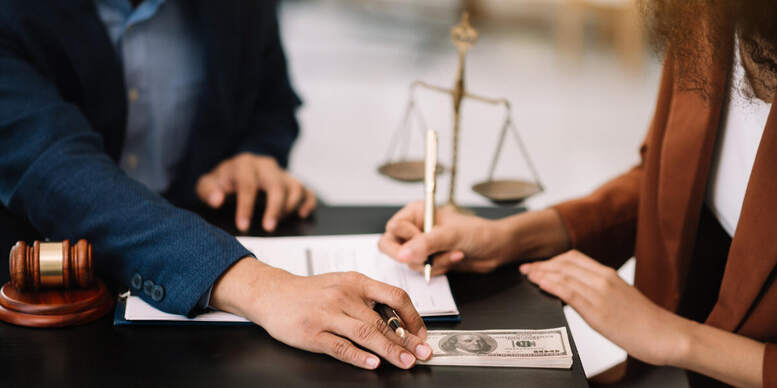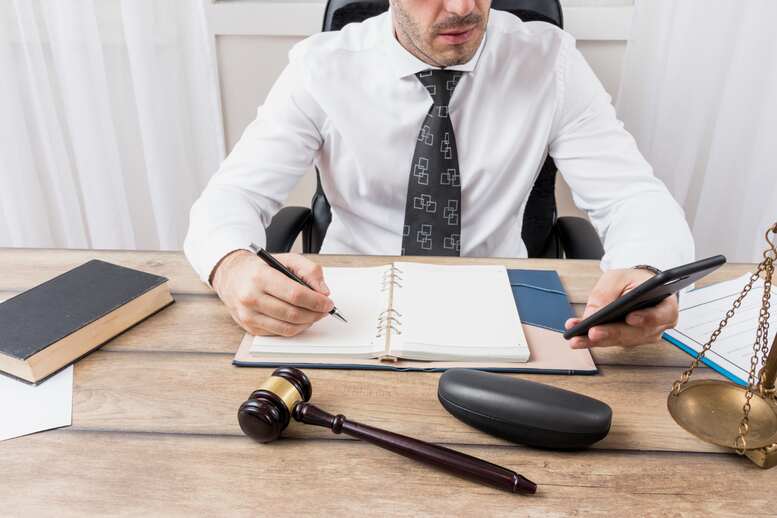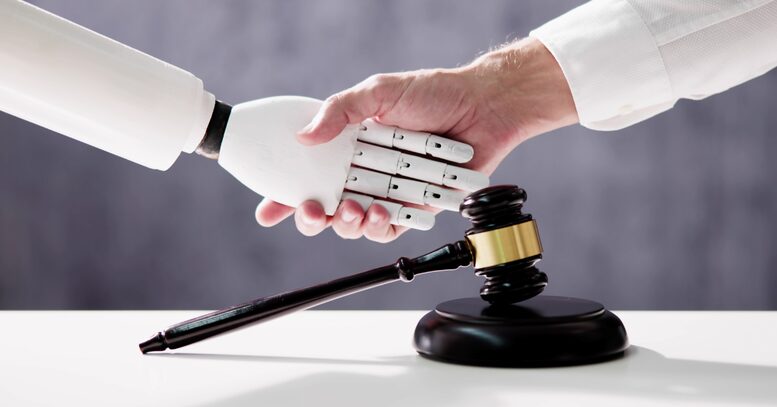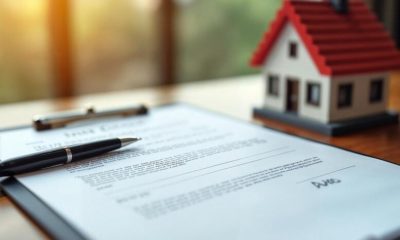Law
How to Protect Yourself From a Bike Accident
Did you know that the number of bicycle-related deaths has increased 37% over the past decade? As a cyclist, you’re at a far greater risk of a serious injury or death after a road accident.
Bike accident death is preventable if all motorists and pedestrians work together to stay safe. We’re here to talk about how you can do your part to protect yourself and the people around you from a bike accident.
Keep reading to learn everything that you need to know.
First and Foremost: Always Wear a Helmet
Too many bicyclists assume that they no longer need helmets once they’re confident in their biking abilities. Some even believe that helmets are only for children.
Many serious bike accident injuries could have been avoided if the cyclist was wearing a helmet. When you’re not wearing any head protection, you’re putting yourself at risk for concussions, traumatic brain injuries, and even death.
You might feel “uncool” wearing a helmet as an adult, but any experienced cyclist will tell you that it’s the best thing that you can do for your safety.
Wear High-Visibility Clothing
Alongside your helmet, you should also be wearing high-visibility clothing unless the day is completely bright and clear. Again, this is something that many people don’t want to do because it feels “uncool,” but it might save your life.
At dawn, during the evening, and during all instances of bad weather, high-visibility clothing will make your presence known to other drivers on the road. It’s difficult to see people on bikes because they don’t have headlights.
If you’re averse to high-visibility clothing, consider adding reflective strips to your helmet and small reflective accessories to the bike itself. This isn’t a perfect solution, but it’s an alternative.
Know the Rules of the Road
Many cyclists don’t understand that they aren’t pedestrians; they’re motorists. All of the rules of the road apply to cyclists, and if you don’t keep that in mind, you’re putting yourself (and the people around you) in danger.
These rules vary depending on where you live. In general, you still have to obey traffic signals, stick to the right side of the road, yield to pedestrians, and follow speed limits (within reason. You will likely go far under the speed limit, and this is okay).
Obeying the rules of the road also protects you in the event of an accident. If you’re following the rules, it’s less likely that you’re at fault.
Use Bike Paths When Possible
Many towns and cities offer bike paths and bike lanes to keep cyclists, motorists, and pedestrians safe. If these paths and lanes are available to you, take advantage of them.
Riding your bike in the road is legal, but it’s not the safest option if you’re surrounded by motorists. Riding on the side of a narrow road without a bike lane is dangerous. Riding on a sidewalk is inadvisable and you could harm a pedestrian.
Bike paths and lanes are the safest routes.
Stay Alert
This is the best way to protect yourself regardless of whether you’re riding a bike or driving a car. Stay alert and aware of the other people on the road.
You should always be a defensive “driver.” Assume that other people are going to make mistakes, and prepare yourself for them. Your goal is to perceive potential hazards before they present themselves.
Keep your eyes on the road but stay aware of things in your peripheral vision. Look beyond what’s directly in front of you to identify upcoming dangers. Learn basic evasive maneuvers.
What to Do After a Bike Accident
Sometimes, despite our best efforts, accidents happen anyway. You can only control yourself and your own safety, and other people don’t always cooperate with your efforts.
If you experience a bike accident, there are a few steps that you should take to ensure your safety and the safety of the people around you.
First, make sure that you get out of the road. Bring your bicycle to the side of the road and out of traffic. If there’s no one else on the road, you may be able to take a photo first, but this isn’t in your best interest in most situations as safety should be your first priority.
Take photos of your bike, the other vehicle, and anything else that might be relevant in the event of a court case. You want to be able to defend yourself and assure the judge that you weren’t at fault (read more here).
Exchange information with the other party involved in the accident. You’ll need their car insurance information as well as a photo of their license plate. You should also exchange contact information.
If there are witnesses nearby, ask them for their contact information as well.
Call 911 to report the accident if necessary and consider contacting a bike accident lawyer. You may also want to visit an urgent care clinic even if you don’t notice any injuries. It’s better to be safe than sorry, and some injuries, like mild concussions, can be difficult to notice right away.
Protect Yourself From a Bike Accident With These Tips
There’s no surefire way to avoid bike accidents, but if you follow these suggestions, you’ll do your part to keep yourself and the other people on the road as safe as possible.
Wear the right protective gear, know the rules of the road, stay alert, and use bike paths and lanes if they’re available to you. In the event of an accident, take all of the same steps that you’d take if you were a motorist.
Stay safe out there. For more helpful articles about the top trending topics, visit the rest of our site.
Law
Legal Cash Advances: Bridging the Financial Gap Between Health Needs and Justice

When an accident lands you in both the emergency room and a courtroom, the medical bills can pile up long before a settlement check ever arrives. That delay isn’t just a numbers game—it has real-world consequences for your well-being. Mounting research links financial strain to higher risks of anxiety, chronic disease flare-ups, and delays in necessary care. In other words, the money you need to stay healthy often arrives after health has already taken a hit. That’s where legal cash advances step in, offering plaintiffs a lifeline that keeps medical and everyday expenses on track while a lawsuit runs its course.
What Exactly Is a Legal Cash Advance?
A legal cash advance—sometimes called pre-settlement funding—is a non-recourse advance offered to plaintiffs with a pending personal injury or similar claim. Because repayment is contingent on winning or settling the case, it differs from a traditional loan: if the case is unsuccessful, the advance typically does not have to be repaid. The American Bar Association notes that consumer-focused litigation funding is usually capped at relatively modest amounts and is designed to cover day-to-day living or treatment costs rather than bankroll an entire trial strategy.
Why Financial Stress Is a Health Issue
It’s easy to treat money and medicine as separate concerns, yet public health data tells another story. The Centers for Disease Control and Prevention reports that 90 percent of the nation’s $4.5 trillion annual health-care spend relates to chronic and mental health conditions—conditions that are aggravated by stress. Stress hormones such as cortisol can disrupt sleep, raise blood pressure, and weaken the immune response, creating a vicious cycle in which unresolved medical bills exacerbate illness, and worsening illness amplifies costs.
The Real-World Cost of Waiting for a Settlement
Even a short gap between injury and compensation can destabilize a household budget. According to the CDC’s National Health Interview Survey, nearly one in ten U.S. adults lives in a family that has struggled to pay medical bills during the previous 12 months, with higher percentages among those already managing disabilities. For plaintiffs, the situation is often more acute: regular income may dip due to lost work hours, while co-pays, physical therapy, and prescription expenses spike.
How a Cash Advance Supports Ongoing Care
Here’s where a legal cash advance becomes more than a financial tool—it can be a health-preserving measure:
- Continuity of treatment– Plaintiffs can afford recommended follow-up visits, diagnostic imaging, or prescription refills instead of postponing care until “after the settlement.”
- Reduced cost-related non-adherence– Studies show that people under financial pressure are more likely to skip doses or self-ration medication. Access to immediate funds helps prevent that risky behavior.
- Mental-health relief– Knowing that rent and utility payments are covered lightens the cognitive load, letting you focus on physical recovery and the legal process, not late fees.
A Deeper Look at Plaintiff Advantages
For readers who want to unpack how plaintiffs specifically benefit, beyond the medical angle, take a look at an in-depth exploration of the key plaintiff advantages offered by legal cash advances. You’ll find a detailed breakdown of fee structures, approval timelines, and risk considerations that complement the health-centered discussion here.
Due Diligence: Choosing a Reputable Funder
Not every funding offer is equal, and the wrong terms can undercut the very relief you’re seeking. Consider these checkpoints:
- Transparent pricing– Look for a clear, flat fee or interest schedule, laid out in plain English.
- Independent legal counsel– Ethical funders encourage your attorney to review the contract.
- No control over litigation strategy– As emphasized by ABA guidance, funding companies should not direct your attorney’s decisions.
Ask questions, read the fine print, and be wary of pressure tactics. A short-term fix that balloons into an oversized payoff can negate health and financial gains.
Potential Trade-Offs and How to Manage Them
Every financial tool carries downsides. Fees can be higher than conventional credit, and stacking multiple advances magnifies repayment obligations. Talk openly with your lawyer about realistic settlement ranges, how much of that amount a funder has first claim to, and what your net recovery might look like before signing anything. If the numbers no longer cover medical follow-up or household recovery, a smaller advance—or none at all—may be the healthier choice.
The Bigger Picture: Health, Justice, and Financial Stability
Legal cash advances aren’t a magic wand, but they do narrow the dangerous gap between injury-related expenses and eventual compensation. By easing cash-flow crunches, they help plaintiffs avoid treatment delays, medication lapses, and the stress spirals that chip away at recovery. That synergy between financial stability and health outcomes is why pre-settlement funding has become a recurring topic in both legal and public health circles.
When weighing your own options, ground the decision in credible data, a candid budget review, and professional legal advice. Do that, and a well-structured advance can serve as one more tool, alongside physical therapy sessions and follow-up lab work, on the road to reclaiming both health and financial peace of mind.
Read More: Jessica Ditzel
Law
A Detailed Overview of the Litigation Process


Litigation is the formal legal process used to resolve disputes between individuals, businesses, or other entities. This process plays a crucial role in ensuring justice in cases such as personal injury claims, contract disputes, and divorce proceedings.
If you are interested in Litigation Crowdfunding, check this read Litigation Crowdfunding: Do’s and Don’ts — 8 Tips to Maximize Success
Civil Litigation and Court Jurisdiction
Civil litigation can occur in either state or federal courts, depending on the nature of the dispute. In the United States, the Federal Rules of Civil Procedure govern cases in federal courts, aiming to provide a just, speedy, and cost-effective resolution for all involved parties.
The Litigation Process
While the specifics of litigation can vary by jurisdiction, the general process follows these key steps:
1. Filing a Complaint
When the plaintiff formally submits a claim to the court, describing the disagreement and the legal foundation for their position, the procedure officially starts. After that, the court notifies the defendant about the lawsuit through papers.
2. Pre-Trial Motions and Discovery
Motions may be submitted by any party asking the judge to render particular decisions. Typical motions consist of: A motion to compel discovery asks the court to mandate that the other party provide crucial information; A motion for summary judgment is a proposal to settle a case without a full trial when one side is legally entitled to win and the facts are undeniable.
The next step is the discovery phase, during which both parties collect evidence, share documents, and conduct depositions in order to strengthen their views.
3. Trial Proceedings
The case goes to trial if it is not dismissed or settled. Both sides offer arguments and supporting documentation during the trial.
Witnesses may be cross-examined and called to testify.
The burden of proving claims, such as proving negligence in a personal injury case, usually rests with the plaintiff.
4. Verdict and Judgment
The verdict of the case is decided by a jury or a judge. The right to a jury trial is guaranteed by the U.S. Constitution if the plaintiff seeks monetary damages over $20, unless all parties agree to forgo this right. A judge typically renders a decision in cases involving non-monetary remedy, like an injunction.
5. Appeals and Enforcement
A party may file an appeal with a higher court to request a reconsideration of the decision if they are unhappy with it. The verdict is implemented through the judicial system if the appeal is denied.
Arbitration: An Alternative to Litigation
Arbitration is a form of alternative conflict resolution that is useful for people who want to avoid drawn-out and expensive court cases. An unbiased arbiter considers the matter and renders a binding ruling in lieu of a trial, which frequently results in a quicker and more economical resolution.
The Problem of Frivolous Litigation
Although frivolous lawsuits—cases brought with little legal basis, frequently as part of class actions or mass tort claims aiming at financial gain—have become a burden on the litigation system, which is meant to settle legitimate issues. These cases can cost defendants a lot of money, take years to conclude, and deplete the court’s resources. Resolving this issue is essential to preserving a just and effective judicial system.
One essential method for settling conflicts and defending legal rights is still litigation. Businesses and people can successfully manage legal disputes by being aware of the procedure, available options such as arbitration, and the difficulties presented by pointless litigation. Being well-informed is essential to getting the best result whether filing a lawsuit or defending against one.
Resource:https://instituteforlegalreform.com/blog/what-is-litigation/
Read More: jacqulyn elizabeth hanley
Law
Exploring the New Age of Digital Law for Barristers


Legal technology advancements are significantly transforming the way barristers work, creating brand-new opportunities for legal professionals while reshaping traditional practices.
Barrister Emily Windsor shares her insights into how these innovations are influencing the legal landscape, from streamlining case management to enhancing research capabilities.
She also explains why adapting to these technological changes is crucial for modern practitioners who want to remain efficient, competitive, and prepared for the future of legal practice.
Efficiency, Accessibility, and Transformation
Emily Windsor understands the importance of digitisation in democratising legal knowledge and creating a more flexible legal profession.
Reflecting on her role in producing and updating leading agricultural law texts, she acknowledges the impact of moving legal resources online: “Since books have been incorporated into digital platforms, practitioners who would not have dreamt of purchasing a specialist text can now access them at the click of a button,” she notes.
Platforms like the Westlaw online legal database have effectively removed barriers to information, ensuring that specialised legal expertise is widely available to those who need it.
The influence of technology in the legal sphere extends past knowledge dissemination, fundamentally altering advocacy through the accelerated digitalisation of court processes, especially during COVID-19.
Though Emily Windsor is aware of the constraints of remote hearings, particularly in assessing witness demeanor, she also sees the benefits of technological flexibility for lawyers and clients alike.
Furthermore, technology has introduced new possibilities for practitioners to balance professional demands with personal responsibilities. Emily Windsor points out how online access to legal resources and virtual proceedings has made the Bar more accessible, particularly for women and individuals managing family commitments.
The modern barrister must embrace technological tools not only as a matter of convenience but as a means to remain efficient and accessible.
Remote Hearings
The pandemic accelerated the adoption of remote hearings, transforming them from an occasional convenience to a standard practice. Emily Windsor’s observations reinforce how this shift has had lasting effects on the profession. Virtual hearings for procedural matters save time and resources that would otherwise be spent on travel and waiting at court.
This transition to remote proceedings has particular benefits for certain types of legal work. Administrative hearings, case management, and applications without witness testimony can often be handled more efficiently through virtual means. The technology allows barristers to serve more clients in less time, potentially reducing costs for clients while increasing access to legal services.
Work-Life Balance and Diversity
Perhaps one of the most significant impacts of legal technology has been its effect on work-life balance within the profession. Emily Windsor notes that technology has made the Bar more accessible to those with family commitments, particularly women. The ability to access resources remotely and participate in hearings from home or office locations provides flexibility that was previously unavailable.
This technological shift may help address long-standing diversity issues within the legal profession, since by removing some of the rigid structural barriers that have historically made it difficult for certain groups to succeed at the Bar, technology creates pathways for a more diverse and representative legal profession.
-



 Biography6 years ago
Biography6 years agoJacqulyn Elizabeth Hanley is the Mother of Liza Soberano?
-



 Home5 years ago
Home5 years agoEpson L3110 Driver Free Download Latest Updated Version
-



 Games4 years ago
Games4 years agoBest Free To Play MMORPG To Try This 2021
-



 Biography6 years ago
Biography6 years agoAmanda Levy Mckeehan Biography, Family, Net Worth, Age, Affairs, Facts
-



 Biography6 years ago
Biography6 years agoWho is Rose Dorothy Dauriac? Scarlett Johansson Daughter?
-



 Biography6 years ago
Biography6 years agoJessica Ditzel Secret Information that Nobody Knows | Joe Rogan’s Wife
-



 Biography6 years ago
Biography6 years agoWhat is the relation of Nathaniel Larry Osorno with Liza Soberano?
-



 Home6 years ago
Home6 years agoLiza Soberano Biography, Age, Family and Boyfriends































